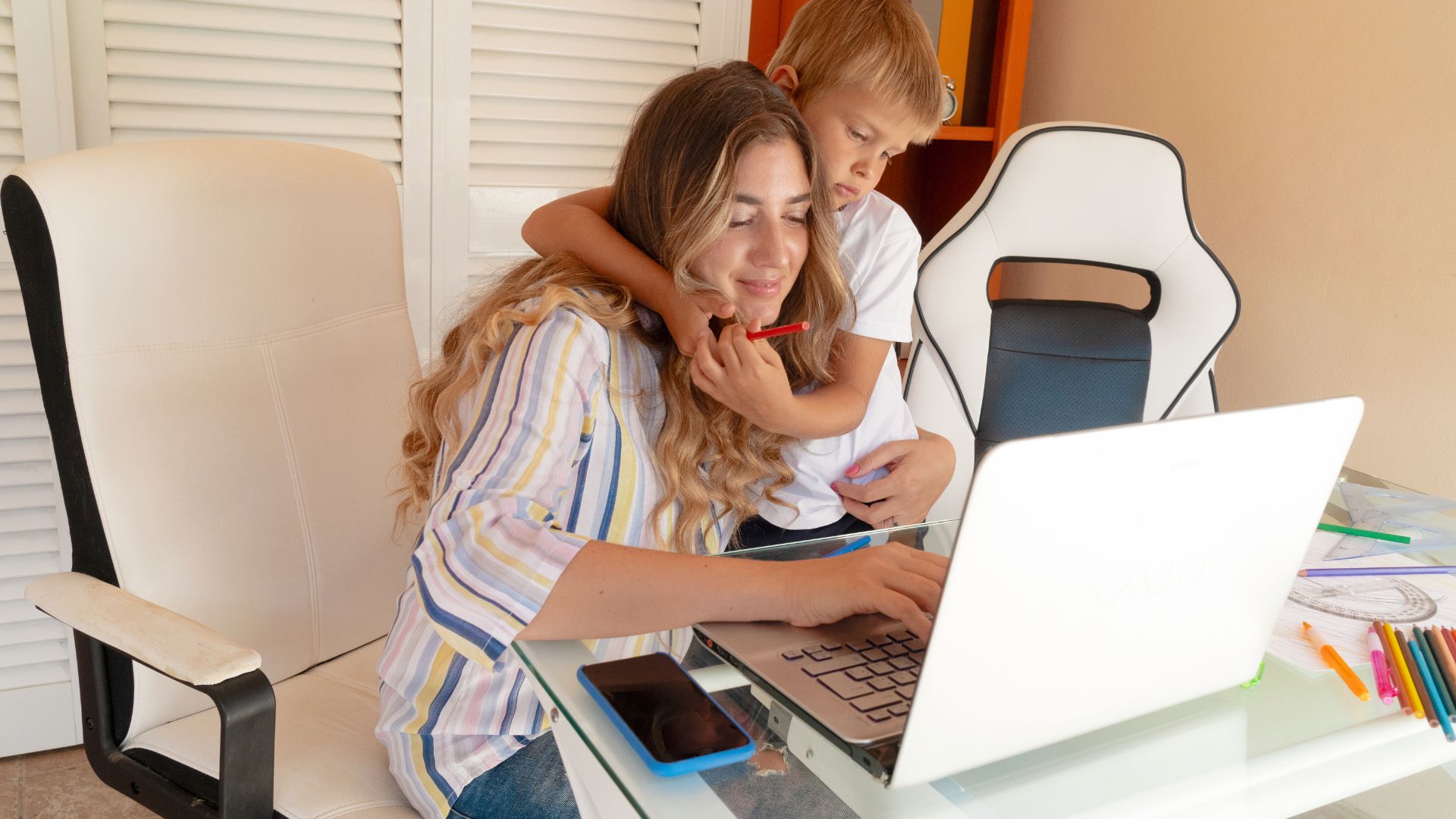 One of my vivid childhood memories is being told to go to bed earlier for school. Especially as the first day of school was getting closer. I never liked it. I would stand at the doorway into the living room, look at my parents, and pout, asking for special permission to stay up “just a little bit longer.” I was pretty sure my parents were having a terrific time without me once I went to bed. My folks never budged, but somehow I kept asking!
One of my vivid childhood memories is being told to go to bed earlier for school. Especially as the first day of school was getting closer. I never liked it. I would stand at the doorway into the living room, look at my parents, and pout, asking for special permission to stay up “just a little bit longer.” I was pretty sure my parents were having a terrific time without me once I went to bed. My folks never budged, but somehow I kept asking!
It wasn’t until I got older that I realized they were not out to keep me from having fun. They stuck to their guns so that I would be healthy – physically, emotionally, and developmentally. They hadn’t read the sleep studies (that were yet to come) but they knew that getting to bed early enough sets children up for emotional and physical health.
A recent article at the Red Tricycle reminded me about this: the importance of an early bedtime for children. I know that many of us need this reminder, especially during the lazy days of summer when we may be tempted to relax our sleep schedule more than is good for us or our children!
As scientists study children and sleep, and specifically early-onset of sleep, we are learning that getting to bed early enough has three main benefits: better emotional health, better developmental health, and better physical health.
Better Emotional Health
You may sense this intuitively, but science is beginning to quantify this: just getting that extra hour of needed sleep can lead to much improved emotional stability in school-aged children. On the other hand, missing an hour of much needed sleep, especially due to a late bedtime, can adversely affect your child’s alertness and, as a result, their performance in school. The American Academy of Pediatrics studied this issue with 7 to 11 year olds and found a direct correlation between improved sleep and emotional stability.
Better Developmental Health
A recent study has also shown a connection between an earlier bedtime and development. Researchers report that 18-month-olds who get to bed before 10 p.m. are at a lower risk for motor, language, and social deficits compared with kids who go to bed later.
Better Physical Health
Lastly, there is a growing body of knowledge that points to the correlation between lack of sleep and obesity for people of all ages. Children who go to bed later tend to have poorer diet habits (consuming more food that is also less nutritionally rich) and they also have a higher BMI (body mass index) compared to those who get to bed earlier.
Six Practical Steps To Get to Bed Earlier for School
Getting to bed early enough is important for your child. But this is one of those things that is much easier said than done!
To help you implement an appropriately early bedtime, here are six practical steps that will act as guardrails for your child’s sleep health.
Figure Out the Right Bedtime
So what time is the right time?
That depends on your child’s age. After 6 months of age you will be the primary force in establishing healthy sleep habits for your child.
A good, early bedtime is typically 1 to 2 hours after dinner and is around 7 to 8 p.m.
If it is much later than this, you may begin to notice more night wakings, early rising, difficulty getting to sleep, and overall less sleep. Just be careful to not push a good principle too far and try for 6 p.m. if 7 p.m. is working well! You want to catch your child’s wakefulness window and not let them stay up until they catch their second wind.
Watch for Sleepy Cues
Each child is unique. You will need to study your own baby and see what they tend to do right before they become overly tired and too fussy to go to sleep easily. Your goal is to put your baby to bed when drowsy but still awake.
Develop a Routine
Even at a very young age it is so important to settle into a fixed pattern you follow as you put your child down for a nap and for bedtime each night. Naptime routines may be super short and sweet (a diaper change, read a short board book, a snuggle and kiss and into bed they go). Bedtime routines may include:
- pjs,
- teeth brushing,
- a potty stop,
- comfort (snuggles and bedtime kisses),
- getting tucked into bed, and
- lights out.
But they may also include a bath, toy pickup time, and a good story time.

Be Consistent
Once you decide on a bed time and a bedtime routine be as consistent as possible. Make this time of day a priority for your child and your parenting and you will likely be rewarded with sweet memories and a healthier child.
Children crave consistency. It makes them feel secure emotionally even when they fight against it at times. Good boundaries build healthy children and a good, flexible sleep schedule is a critical component to good boundaries.
Watch Your Nap Schedule
Your child will nap for many years (through age 4 typically) but that schedule will adjust as they grow. If a late nap seems to be pushing bedtime later and later then it may be time to drop it or adjust the nap schedule overall so that he is becoming tired between 7 and 8 p.m.
Prepare Your Child’s Sleep Space
- Ideally, your child’s sleep space is consistent. This means it is the primary place that he sleeps, day in and day out. Consistency in your child’s sleep space will lend a sense of predictability and calm whereas a new place will tend to agitate and keep him awake longer.
- Be sure the room is a good temperature for sleeping.
- A dark room will help your child fall asleep faster and stay asleep longer in the morning. Light sends signals to our brain to wake us, so eliminating as much light as possible will help your child’s body produce melatonin which helps with restful sleep.
- White Noise. Many children sleep more easily with some white noise in the room. This is particularly helpful when siblings in the home make noise during your baby’s sleep time or if you tend to hear noise from outside your home at night or early in the morning.
- Be sure your child’s crib is free of fluffy blankets, toys, and pillows until they are over 1 year old. Check for a tight-fitting sheet on a firm mattress as well. Keep all smoking outside of the home and far away from your child. And be sure your put your child on his back to sleep to avoid any danger of SIDS. These and other safety tips will help ensure your child has a safe sleep environment each and every day.
The potential benefits of getting your child to bed earlier are priceless: better emotional, developmental, and physical health. Why wouldn’t we do all we can to provide these benefits for our children? It will take some extra effort and maybe, for some, a major adjustment to your schedule, to make an early bedtime a priority. But, I assure you that the benefits far outweigh the initial difficulties.


